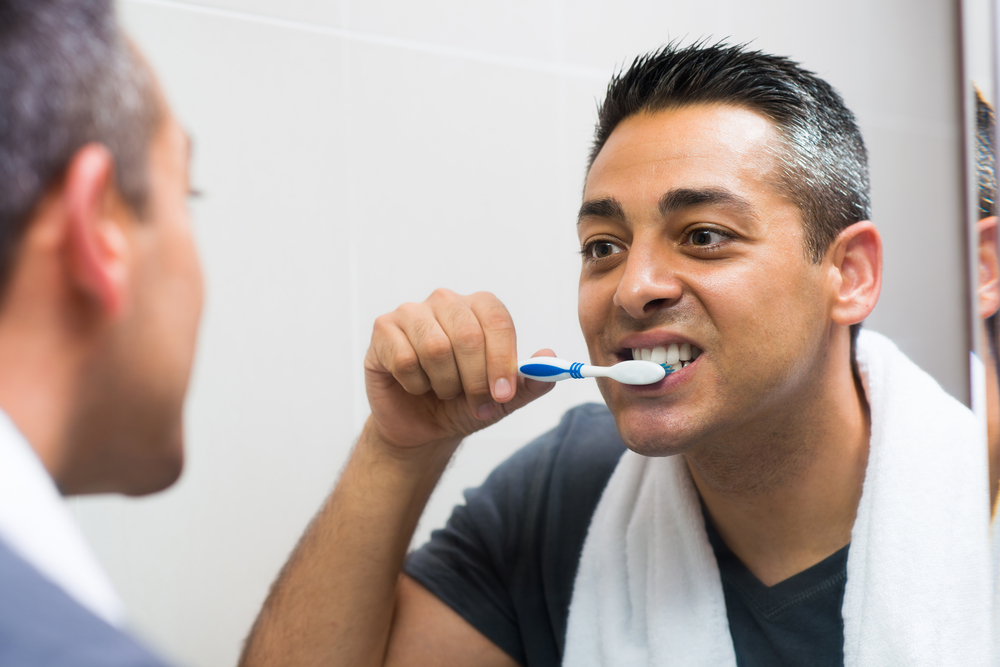Contents:
- Medical Video: What Causes RECEDING GUMS | How to Reverse RECEDING GUMS Naturally
- How can diabetes affect oral health?
- Symptoms of dental and oral disease in diabetics
- Prevent dental and mouth problems in diabetics
- Treat periodontitis
Medical Video: What Causes RECEDING GUMS | How to Reverse RECEDING GUMS Naturally
Diabetes is arguably the gateway to various kinds of diseases if we are not able to maintain it properly. In contrast to other diseases that can be overcome with regular medication, diabetes requires extra attention because discipline is needed from the owner of the disease to control stability in his blood sugar. Taking medication regularly without being supported by the discipline of living a healthy lifestyle will make your diabetes more difficult to control.
Diabetes brings a variety of complications if it is not well controlled, such as nerve, kidney, heart and other important organs in your body, including dental problems. Those with diabetes have a higher risk of being exposed to dental and oral health problems.
Tooth and mouth problems that are usually experienced by diabetics are infections that occur in the gums and bones (jaw) which serves to hold the teeth in place. At a more serious stage, dental and mouth problems can cause pain when chewing and causing tooth loss.
How can diabetes affect oral health?
Control of blood sugar that is bad for diabetics can increase your risk of developing dental and oral diseases called periodontitis. So, clearly your self-discipline in controlling diabetes will determine the condition of your teeth and mouth health in the future.
The first stage of dental and mouth problems is called gingivitis. Gingivitis results from bad habits rarely brushing teeth, which causes plaque to occur. This plaque will later be the reason for gum inflammation that occurs. This can be corrected by growing the habit of brushing your teeth better and gargling with antiseptics. Doing both habits will prevent you from more serious dental and oral problems, called periodontitis.
The high blood sugar levels in the body of people with diabetes are known to have an impact on poor blood circulation, especially for diabetics who smoke. Poor blood circulation makes the blood supply containing oxygen not able to flow properly to the parts of the body that need it, including the gums. As a result, infection will occur more easily.
In the periodontitis phase, plaque builds up under the gums and will form a bag of infection between your teeth. The bag will cause the bones and gums to hold your teeth in place to lose their ability to cause your teeth to shake and even date.
Symptoms of dental and oral disease in diabetics
Poor control of blood sugar can bring a variety of complications, including dental and mouth problems. But, in fact, the relationship between diabetes and dental and oral diseases does not take place in one direction. That is, those with diabetes are very at risk of dental and oral diseases, and vice versa. Oral and dental problems that occur in normal people can also affect blood sugar control in their bodies and contribute to the potential for diabetes that might occur to them.
In general, periodontitis causes no symptoms until the disease becomes severe. Even so, there are some symptoms that can alarm you, namely:
- Sprue
- Dry mouth
- Bleeding gums or pain
- Frequent infections
- Bad breath that never goes away
- The gum drops so that you can see the cross section of your teeth longer
Prevent dental and mouth problems in diabetics
For people with diabetes, the main thing that must be done to avoid various kinds of complications, including dental and oral complications is to keep your blood sugar levels within normal limits. The trick is to maintain food intake that enters your body and exercise regularly at least 30 minutes. If you have medicines that have been prescribed by a doctor, take them regularly according to the instructions given.
To prevent dental and mouth problems in diabetic patients, you should do a dental check regularly, every six months. Avoid smoking so that your blood circulation is not more burdened. Don't forget to tell your dentist that you have diabetes.
Treat periodontitis
- Remove plaque. In the early stages, treatment is done by removing plaque that builds up under the gums so that the gums can re-attach to the teeth. Flushing the special antibiotics can also help with the healing process. This method works well in patients who routinely treat teeth through regular toothbrushes and use dental floss to prevent plaque from returning.
- Periodontitis surgery. When it reaches a later stage, sometimes surgery is needed to cure this tooth and mouth problem. Damaged gums will be repaired so that later the teeth have a place to stick back. This is certainly done after the attached plaque is also cleaned.
Make sure that you inform your dentist about the history of diabetes you have. Also consult your doctor if you have a plan for dental surgery to find out if treatment changes are needed in your diabetes before surgery.












